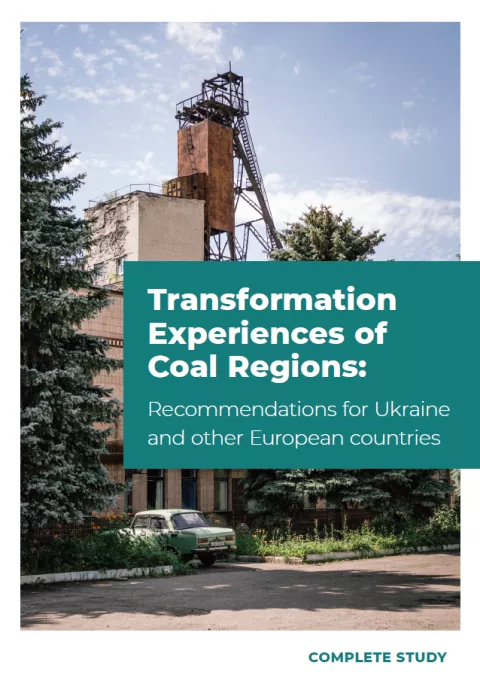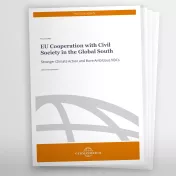
In June 2019, the summary was published – now the entire study is being released, commissioned by Germanwatch together with the Ukrainian environmental organisation Ecoaction. Nine authors from four countries analyse the transformation experiences of Germany, Romania, the Czech Republic and Ukraine on the grounds of quantitative data and policy analysis. Visualisations of the recommendations and checklists top off the publication and make it a useful tool for political decision-makers in different European countries.
The study’s authors conclude that transformation processes need to be organised proactively and should be started as early as possible. Central aspects are an explicit exit date, a well-structured dialogue between the involved parties, special funds and development agencies in the affected regions. Strategic opportunities for the regions lay within education, infrastructure, innovation and research, social security and cultural identity.
By analysing the core data, it is shown that European coal regions are currently undergoing a painful transformation process. Coal mining in all four countries as well as the corresponding employment numbers have been severely decreasing for decades. Employment in the countries has declined by at least the factor ten between 1990 and 2016. Without a plan for the structural transformation, the affected coal regions risk to end up in a dangerous vicious circle regarding their economic and social situation. However, what is becoming more and more apparent in the coal regions is a core trend: Due to the high CO2-emissions from coal-based power generation and the low costs of renewable energy generation, the coal industry will most likely cease to exist by 2050 in accordance with the Paris climate agreement.
The energy transition in the power sector, though, is a lengthy process in all four countries as approximately 25 to 50 percent of their power is still produced in coal-fired power plants.
The study is part of the project “A Multi-Actor-Partnership for the structural transformation process in Donbas (Ukraine)”. This project is supported by Engagement Global with funds from the German Federal Ministry for Economic Cooperation and Development.



